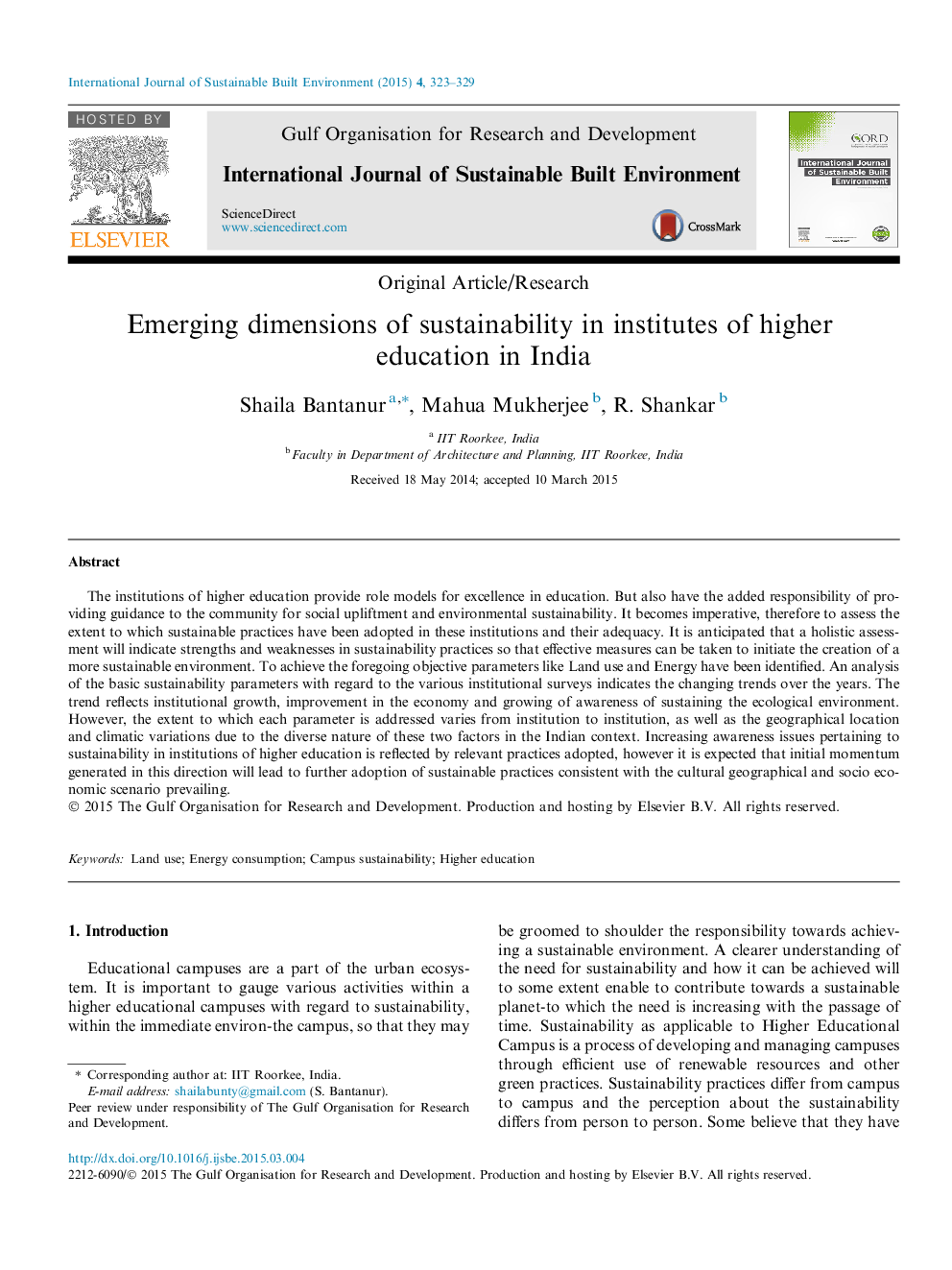| Article ID | Journal | Published Year | Pages | File Type |
|---|---|---|---|---|
| 214775 | International Journal of Sustainable Built Environment | 2015 | 7 Pages |
The institutions of higher education provide role models for excellence in education. But also have the added responsibility of providing guidance to the community for social upliftment and environmental sustainability. It becomes imperative, therefore to assess the extent to which sustainable practices have been adopted in these institutions and their adequacy. It is anticipated that a holistic assessment will indicate strengths and weaknesses in sustainability practices so that effective measures can be taken to initiate the creation of a more sustainable environment. To achieve the foregoing objective parameters like Land use and Energy have been identified. An analysis of the basic sustainability parameters with regard to the various institutional surveys indicates the changing trends over the years. The trend reflects institutional growth, improvement in the economy and growing of awareness of sustaining the ecological environment. However, the extent to which each parameter is addressed varies from institution to institution, as well as the geographical location and climatic variations due to the diverse nature of these two factors in the Indian context. Increasing awareness issues pertaining to sustainability in institutions of higher education is reflected by relevant practices adopted, however it is expected that initial momentum generated in this direction will lead to further adoption of sustainable practices consistent with the cultural geographical and socio economic scenario prevailing.
